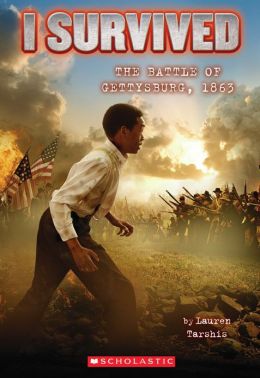
Westport author Lauren Tarshis knows what it’s like to struggle with reading. “I was a terrible reader as a child. I really didn't read books until high school,” she confessed when I spoke to her last fall about her “I Survived” historical fiction series for young readers. Recommended for ages 7 – 10, each of the eight novels in the series narrates the story of a historic disaster—among them the sinking of the Titanic, the bombing of Pearl Harbor, Hurricane Katrina, and September 11—through the eyes of a child living through it.
I was thinking about Tarshis today for the obvious reason. For the second time in four months, I face speaking with my 11-year old son about a tragic event that has claimed the lives of children. He wants, as we all do, to understand why, to feel safe walking around in the world, to believe that if he were forced to confront the unspeakable, he would find hidden reserves of strength, a way back to the light.
We cannot promise to our children a long life free of suffering, but what we can teach them is to develop and draw on their inner reserves. And this is the story Tarshis’ books tell. “My books,” Tarshis explained, “really are about resilience, about kids discovering inner resources they didn't know they had, family connections they didn't understand fully, the importance of hope and optimism in life.”
In her latest novel in the series, “I Survived the Battle of Gettysburg, 1863,” written to commemorate the 150th anniversary of the pivotal Civil War battle and released in February, 11-year old Thomas and his little sister Birdie, slaves on a Virginia farm, escape to the North in search of freedom. The first chapter begins, as do all of the “I Survived” novels, at the moment of crisis: Thomas in the midst of the battle. Cannons erupt, and bullets fly around him. A rebel soldiers fires at him, and Thomas falls to the ground.
The next chapter travels backwards to the beginning of Thomas’ journey, which begins on the farm when, after discovering that their master intends to sell Thomas, he and Birdie attempt to escape rather than be separated. From there, we follow them as they fend off rebel soldiers, save the life of a Northern soldier, and travel north with a Union military unit headed to Pennsylvania for the Battle of Gettysburg. We reunite at the moment where the novel began and then move forward to face the aftermath.
Tarshis’ inspiration for the series flowed from what drew her to reading as a child. “The earliest books I loved,” she explained, “were about historical events and disasters.” From the thousands of letters she has received in the two years since beginning the series, Tarshis has gathered that her young readers most connect with “the combination of emotion and action.” All of Tarshis’ narrators face difficult choices and undesirable outcomes, but they also all find hope.
In this sense, the comfort Tarshis’ novels provide is not a false promise but a deeper faith, the best of what books can give us when the world seems very dark. Raising children to be readers provides a broad spectrum of advantages; not least among them are models for what it looks like to be strong and resilient, to forge ahead in search of the light even in the darkest hour.
Tarshis will be at the Westport Library on Wednesday, April 24 at 10 a.m. to speak about her early struggles with reading, how she overcame them, and how to interest children in reading. I, for one, will be listening.
For more information about Tarshis’ talk, which is free and open to the public, phone (203) 291-4800, or visit the library online at westportlibrary.org.